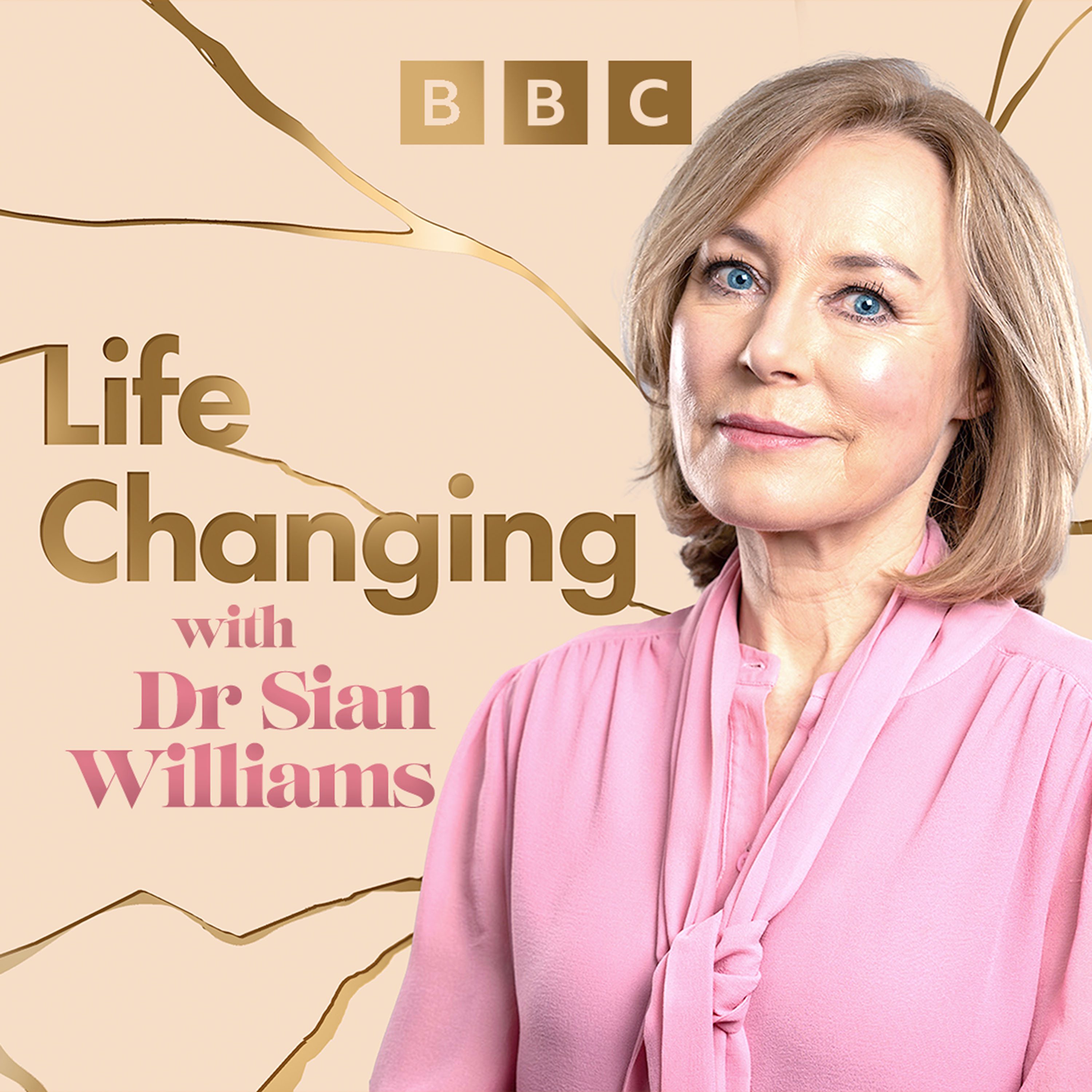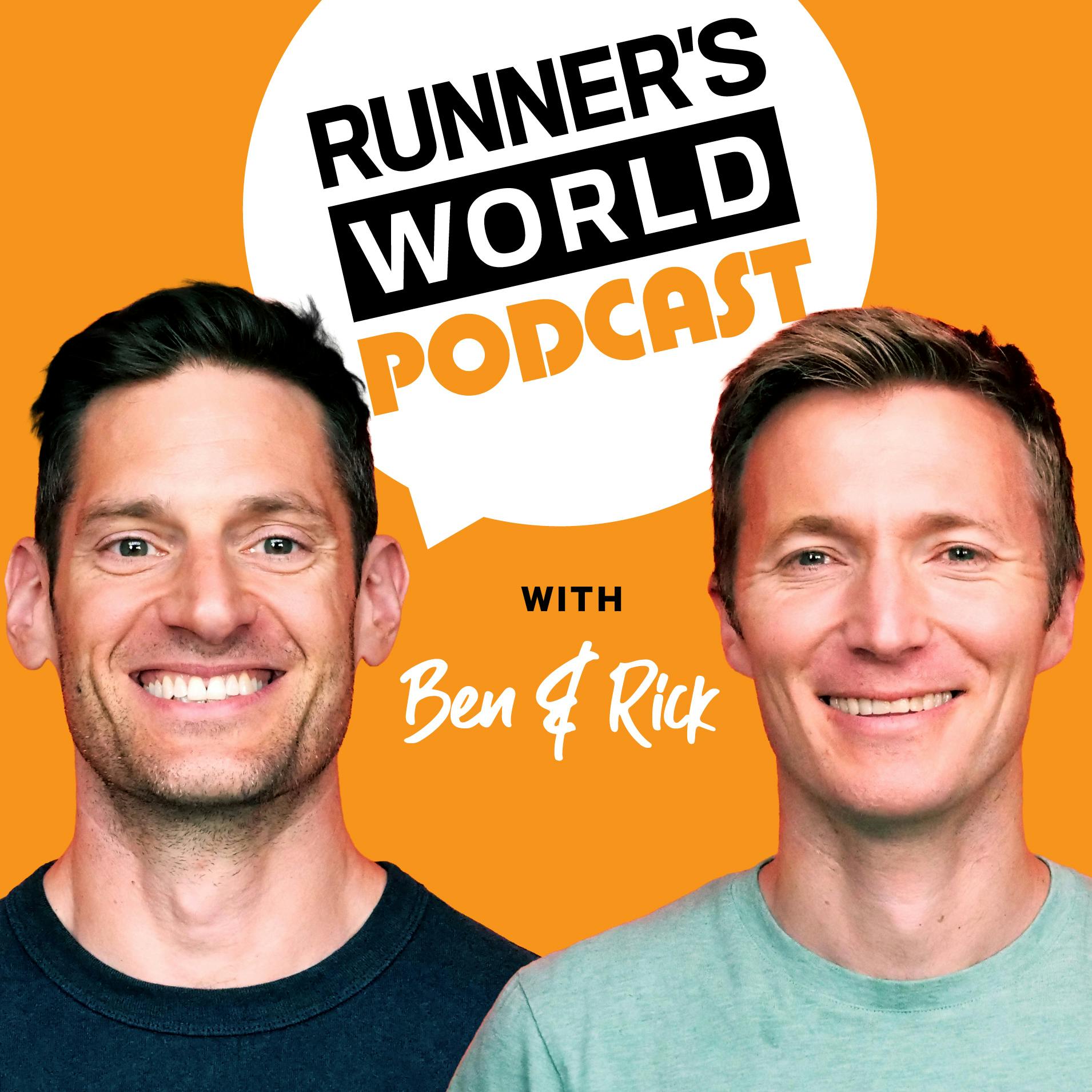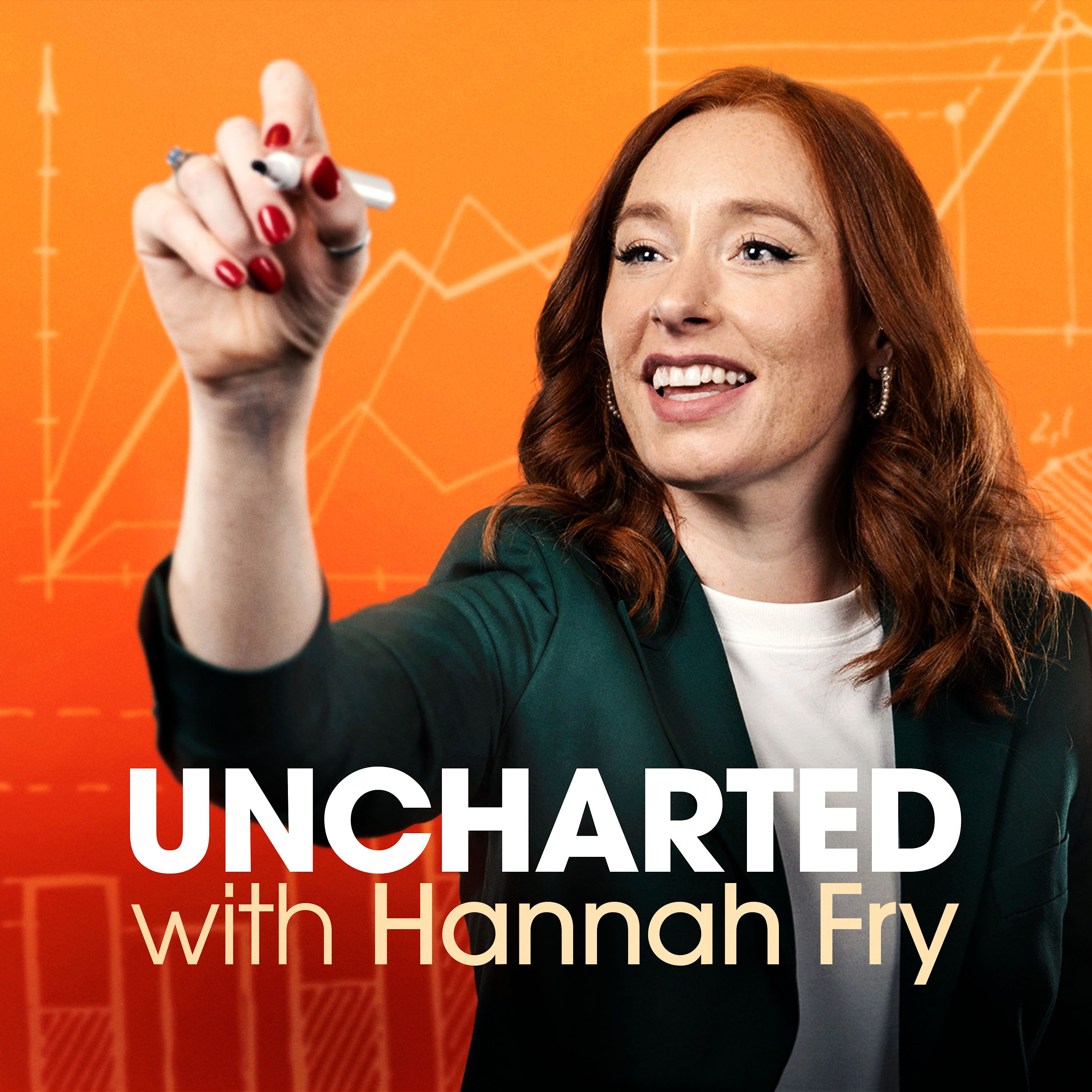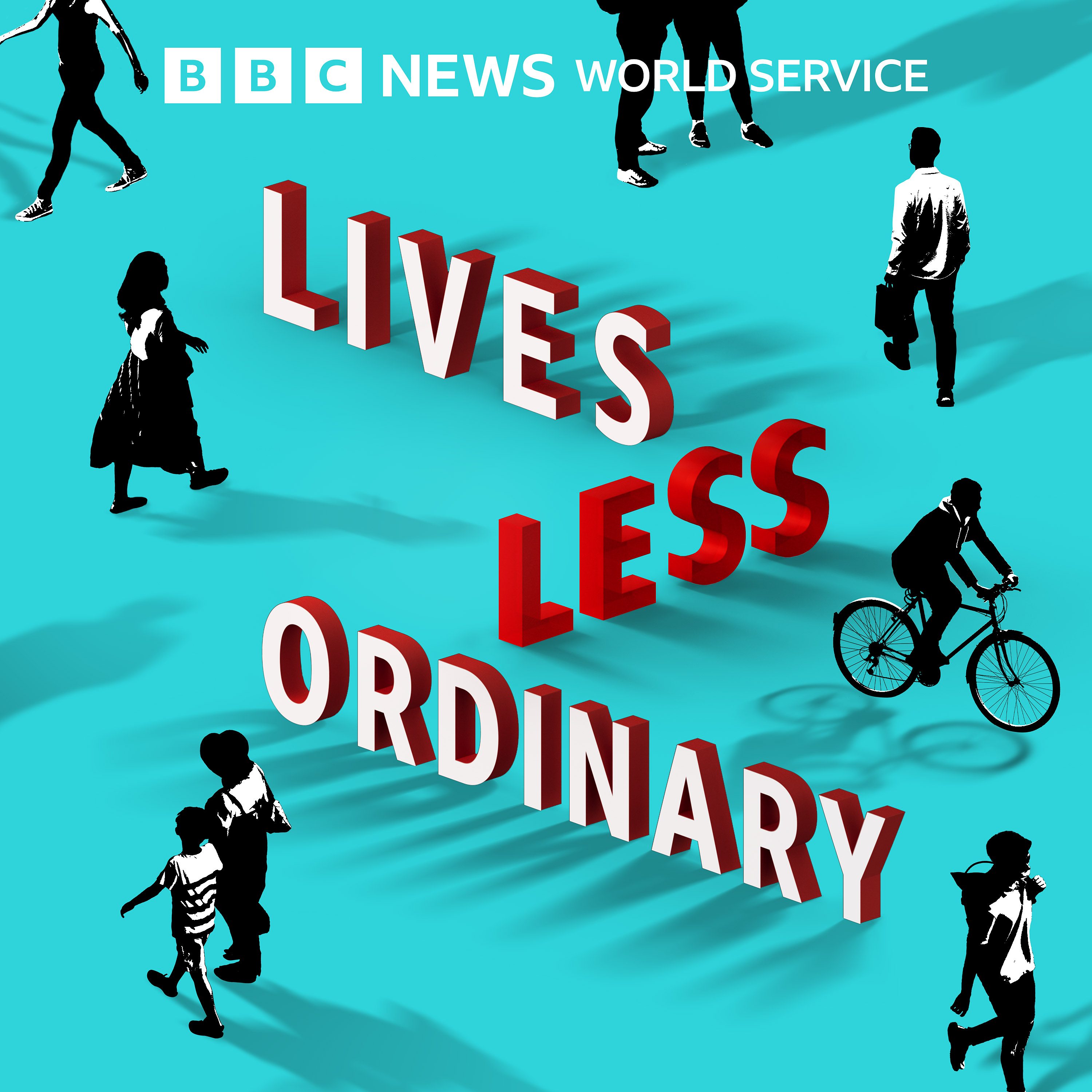
Brian's Run Pod
Welcome to Brian's Run Pod, the podcast where we lace up our running shoes and explore the exhilarating world of running. Whether you're a seasoned marathoner, a casual jogger, or just thinking about taking your first stride, this podcast is your ultimate companion on your running journey.
Join us as we dive deep into the sport of running, covering everything from training tips and race strategies to personal stories and inspiring interviews with runners from all walks of life. Whether you're looking to improve your race times, stay motivated, or simply enjoy the therapeutic rhythm of running, Brian's Run Pod has something for every runner.
Brian's Run Pod
The Power of Protein: A Runner's Nutritional Guide
Nutritional expert Lisa Franz shares insights on meal timing, protein intake, and strength training specifically designed for runners who want to optimize their performance and overall health.
• The most important factor for weight management is overall daily calorie and protein consumption, not necessarily meal frequency
• Adding a protein-containing snack (200-300 calories) in the afternoon can prevent energy crashes and overeating at dinner
• AI food tracking apps have limitations but can work as supportive tools when combined with manual estimation
• Aim for 80-90% of your diet from whole foods for better satiety, but embrace moderation rather than extreme restrictions
• Strength training for runners should focus on neglected muscles: glutes, upper back, lateral movements, and core stability
• Train in the 6-20 rep range for optimal strength benefits without compromising running performance
• Self-talk and mindset significantly impact nutritional success – reframing negative narratives creates sustainable change
• Having supportive conversations with family/friends about your health goals helps establish your new healthy identity
For more information or to connect with Lisa, visit Nutrition Coaching and Life on Instagram, LinkedIn, YouTube, or check out the Nutrition and Life Podcast.
Lisa Franz Website
Brian's Run Pod has become interactive with the audience. If you look at the top of the Episode description tap on "Send us a Text Message". You can tell me what you think of the episode or alternatively what you would like covered. If your lucky I might even read them out on the podcast.
Instagram
So you're thinking about running but not sure how to take the first step. My name is Brian Patterson and I'm here to help. Welcome to Brian's Rompod. Welcome back to brian's run pod, and it's me, your host, brian patterson, for more hints and tips about running.
Speaker 1:Now, in the second part of my chat with nutritional expert lisa franz, I started asking her about whether it's good to have smaller meals throughout the day or have fewer larger meals. Now, if you have listened to part one of my chat with Lisa, there's so much to unpack from her wealth of knowledge. If you haven't, then please do go back and listen. So, without further ado, let's get into it. I was going to ask you, is it better to have smaller meals, sort of thing? Because I know sometimes most people listening will probably be working and and whatever. So you know they'll have their breakfast and then the next time they can eat would be they can.
Speaker 1:They may go for lunch, or they have their own lunch, or, and then the next time maybe it might be evening. But then in between, I know, sometimes in the afternoon I always go for a little walk or something like that, but I am feeling quite hungry, you know, hungry, even though I've had, uh, I've had something to eat at lunchtime, maybe an hour or an hour and a half beforehand. Um, what, what, what would you, rather than going to the store and then reaching out for the chocolate bar, as it were? What would your recommendations be? Because sometimes I just go and find, you know, maybe I think I'm being good and I say I'll get some almonds or something like that, but I don't know. I mean, I hand it over to you.
Speaker 2:Yeah, really, I think a lot of people ask themselves that question and we can look at this a little bit like a hierarchy. So the, again, the most important thing when it comes to weight maintenance or loss or gain really is the overall daily calorie and protein consumption. So if you're listening to this and you're like I feel the best only eating two meals a day, but they're big meals, and please, by all means, go for it. If you're listening to this and you're like I feel the best only eating two meals a day, but they're big meals, please, by all means, go for it. If you're listening to this and you're like I feel best and I eat three meals per day and three snacks on top of that and I feel good with that, please go for it.
Speaker 2:When it comes to meal frequency, there really is no right or wrong, but I would say the majority of people that you also kind of alluded to, and that I certainly fall into the same category that you mentioned that often we feel like we need to drag ourselves from lunch from, like you know let's say, we have lunch at noon to dinner at 7 or even 8 pm or something like that, or maybe even, if you're an early eater at five o'clock. Nonetheless, that's five or six hours. And then you wonder why. You come home and you're ravenous. You're grabbing anything that's inside. You're at that hungry stage where your blood shows Guilty as charged yeah.
Speaker 2:Yeah, and I mean like I used to be there too and many of the people, especially like I, feel like it's even more so women, they kind of like force themselves through that afternoon window. Or maybe you grab a coffee or so, or every now and then you succumb to like, oh, I have a coffee or so, or every now and then you succumb to like I'm gonna have a muffin and you have that super sugary thing and then you feel guilty about it and you don't have a proper appetite for your actual dinner. So I always recommend in those instances to have a protein containing snack in the afternoon. That's really, um, something that can absolutely help us with that afternoon low that so many of us experience, when it's like three o'clock or four o'clock and you're like, oh, I can't focus anymore, I'm just distracted, I'm super sleepy. So again, it can be something convenient maybe not as ideal such as a protein bar or protein shake.
Speaker 2:It can also be your yogurt and some fruit. It can also be the boiled eggs that I was talking about, sometimes even just be like a small portion of what you have had for a main meal, or it could be some rice crackers with a little bit of deli turkey or something like that. So there is a lot of variation there, but the important thing would be that it contains protein and, you know, like a two, three hundred calorie snack.
Speaker 2:It shouldn't be another, another meal, um, necessarily, so nothing exorbitant um but yeah, I would say that that works really well for most people. The other reason why, um, sometimes I um encourage people to try to have more frequent meals or at least add something small in the morning, even if they say, oh, I'm not that hungry in the morning or I'm on the go in the morning, I don't have much time. The reason here again comes down to protein.
Speaker 2:Because so many people are not actually able to meet their protein needs when just eating two or three meals Like especially women like you know, you might have your coffee in the morning and then you have your lunch even if it's like a salad and has a tiny bit of chicken on that maybe like four ounces of chicken or a hundred grams of chicken or something like that and then you have just a tiny snack, some fruit, in the afternoon and then you have your dinner with an egg or two or something like that. That's not 150 grams or that's nowhere near the amount that you should be having. So in those cases I say, okay, I get that you're busy, but let's at least have a smoothie with some protein and maybe some healthy fats and some fiber in the morning so that you're not falling into that afternoon low again or so that you are meeting your protein needs. So that's kind of the other reason. Or, of course, if people work out in the morning and then they don't have anything before or after and they force themselves to go through to lunch.
Speaker 2:So I often see that with the intermittent fasting crowd that are like oh yeah, we're intermittent fasting, we take off to eat until lunchtime. Nothing wrong with that, absolutely nothing wrong with that. Again, it comes down to total daily calories if that's something that works for you. But I would just say, make sure that you're training in your eating window, because otherwise you're not going to be performing as well and you're not going to refuel as well. So we want to make sure we're eating something within a couple of hours after our training and that we're ideally starting our training at least with a little bit of fuel in our body I could talk to you for hours.
Speaker 1:I mean, you give us so much information, sort of thing. I can't help thinking that when people are listening to this, they should listen to it at 0.5, sorry yes, I'm going fast, I'm trying to pack it no, that's great.
Speaker 1:It's fantastic. I was just um. There's a couple of things that have come to mind, because I know we're sort of going back and forth, but with using the tracking apps, I know recently I've been using a couple and I hadn't used them for a while, and now they're incorporating AI where you can take a picture. What are your thoughts about that?
Speaker 2:Yeah, that's a really good point, and I am generally like, even though I'm I'm, I'm a millennial and technically should be embracing technology more, I'm quite old school when it comes to a lot of things yeah, okay. I even resist buying a kindle, even though I travel so much. I just love paper version books and I love making notes and stuff like that. So yeah, I probably need to preface that, but I will say that I don't actually think that the picture function works that well.
Speaker 2:Of course it's continuously improving, so this might be different in two months' time or in half a year's time, but what that doesn't capture is quite often the depth of things yes, that's true, it's only one dimensional, yeah, yeah chicken that I gave. This chicken uh thing could be you know two thousand two fingers deep, or it could just be super, super flat because someone pounded it flat. So it doesn't see that and, more importantly also, it doesn't capture how greasy something is, like how much oil was used in the cooking process.
Speaker 2:Yeah, that's true, or even small things like sesame seeds or nuts sprinkled over your salad. It doesn't often kind of misses that as well, but I will say like every now and then it can work as a little bit of a supportive tool. So because I've had clients ask the same thing and I said I would like for you to estimate first how much you think that is. Let's say they go out to a restaurant and they're like oh, at least I don't really like I didn't have a food scale. I'm going to estimate how much that was. And I always want them to think first and then use the AI tool to kind of like double check. Oh, would AI say the same thing.
Speaker 1:Oh right, Okay yeah.
Speaker 2:Oh, ai mentioned this could be more.
Speaker 2:Yeah, okay, actually that's right, because we ourselves tend to underestimate also.
Speaker 2:So if we have two estimations, we can kind of assimilate that a little bit more.
Speaker 2:And yeah, another reason why I would not solely rely on that is because it really misses the educational point of those apps like or of weighing out your food as well. So if you just take a picture and you do that for a month or two, after two months you're still not going to know how big roughly 150 grams of chicken or how much that looks like, because you constantly relied on the app. That's kind of like if you always just drive the gps or a navigational system and you never pay attention to the road, or you just sit in the back seat and someone's chauffeuring you around, you're not gonna really know how to get there. But if you put the food on the scale ah, okay, that's how much that looks like and you type it in and then after a month or two your eyes are going to be trained of like this is roughly how much my portion size should be, instead of just relying on the technology yeah, it's a bit of a gimmick it is.
Speaker 2:I mean, yeah, it can it's. I would say it's probably better than nothing. Like if you're listening to like I have absolutely no time for anything. This's probably better than nothing. Like if you're listening to like I have absolutely no time for anything. This might be better than nothing. But if we're putting in work, we might as well do it properly.
Speaker 1:Yeah, I mean, if anything, I kind of I did it for maybe a couple of weeks and whatever. And then I thought, well, I've always been used to sort of weighing things out or you know, look, you know, scanning the cereal box or the food packaging, that kind of thing. Oh God, I've got so much to ask you. We've already got so much time. So just a couple of things. I know there has been a trend, especially over here. There's been a couple of doctors, twins, I think. One of them has written a book about ultra-processed foods and there's very much been a trend how… to move away from that and to sort of, obviously, to try to either make more sort of natural foods, just like what you were saying here, sort of thing.
Speaker 1:What are your thoughts about that?
Speaker 2:Yeah, I mean, as you mentioned, I kind of alluded to the fact that I do stand behind. Yeah, we should aim for, you know, roughly 80, 90% coming from whole foods, mostly for satiety reasons. Not even necessarily because, again, there's nothing demonizing or nothing inherently that's going to be inherently fattening regardless of calorie content in those foods, but really more from a satiation perspective. But really more from a satiation perspective Because, of course, like even just logically speaking, if something is pre-processed, your body is going to have to do less processing when digesting that. So, even as you're digesting it, you use less calories in the burning process, because our metabolism is really made up of various things. It's not just like we have a metabolism in full stop, it's like you have your basal metabolic rate, the amount of calories that you burn just by doing absolutely nothing, laying in a bed, you know, like in a coma, for instance. Then, on top of that, we have the calories that we burn in our day-to-day activity, like sitting up, blinking, gesturing, that kind of stuff that's referred to as NEAT, non-exercise activity thermogenesis.
Speaker 2:And then on top of that we have the exercise activity thermogenesis. That's kind of more obvious where we go for a run, where we go for a walk, where like all that kind of intentional exercise. And then the last pillar, and that's often also a little bit underrated. The last pillar is the thermic effect of food. So that means the energy that your body requires in order to break down the food that you consume. If you consume more whole foods, your body is going to need more energy to break that down and especially, again, like protein is a difficult or different structure than carbs and fats and it's going to require more breaking down. So you actually burn more calories in the breaking down of protein than in carbs and fats, but specifically from whole foods. So I do think that that's a big part why we're more satiated. Or if you look at a plate of 400 calories from whole foods, that might be, your potatoes and your broccoli and your chicken breast.
Speaker 2:That looks very different than if you have 400 calories from ice cream or from a smoothie or something or from, let's say, a milkshake or anything like that. Your body is going to burn through that very quickly and you're going to be hungry again after an hour perhaps. But back to your question. I really want people to embrace moderation more than anything, because I think extreme approaches are one of the biggest reasons why we yo-yo when it comes to weight. So we think I'm going to do this super clean eating diet, kind of like I put myself through. Also, I'm like I'm never going to have sugar. I'm cutting out sugar completely. I will not eat bread anymore because that's processed. I'm never going to have pizza, because pizza is also processed and whatever. And so.
Speaker 2:I'm only going to eat clean. And then you do that for six weeks and you're like, okay, I lost some weight.
Speaker 2:And then your daughter has her birthday party and there's cake and you're like, oh, I haven't had cake in six weeks, so you eat two pieces, and then I, I'm gonna get back on track on monday. And then you force yourself to eat clean again. And then friday's date night, you're like, oh, okay, I'll just have that tiramisu and two glasses of wine and I'll get back on it on monday. So this whole starting back over and like beating yourself up about something that you had or not being able to eat something in moderation, in my opinion is really, really a big reason why we keep yo-yoing and why we have such a negative relationship with food, whereas if we said, oh, there's absolutely nothing wrong with having two pieces of dark chocolate with my afternoon tea, because I just enjoy it and you know it's two pieces and then also takes a little bit away that the specialness of it, because you don't the the the day that you are being exposed to chocolate.
Speaker 2:you're like I have two pieces every single day anyway, but or if you've, if you cut it out completely and you forbid yourself to have chocolate, you're gonna go and eat the whole bloody bar because you cannot ever have it again.
Speaker 1:so yeah, so it's a mind thing, as it were.
Speaker 2:Yeah, yeah, it's a psychological thing people bring attention to the importance of eating more whole foods, but I don't want anyone listening to think, thinking yeah, that they can, that they can never have denying themselves, as it were.
Speaker 2:Yeah, exactly so yeah, I would. I think I mean the same goes for exercise also, if we find a sustainable approach where we're like what actually fits into my lifestyle, how often can I go for a run Two times a week? Sure, we'll start with two times a week, 20 minutes and then building on that because it feels sustainable, as opposed to thinking, oh, you need to do. You're going to go from doing absolutely nothing to going for six runs per week and you're starting with 10k the first time around. Um, probably on day three you're so sore that you are never running again for the next half year.
Speaker 1:Yeah, yeah moderation just to change track a little bit and I wanted to sort of skip ahead because I think we did, we have just us to talk about, uh, some training. But, um, I wanted to sort of skip ahead because I think we have just talked about some training but I wanted to sort of try and tap into your knowledge about strength training which could be applicable for runners. So, first of all, I always get confused about this whether high reps is good or, let's say, we should be looking, you, you know, for a kind of like a basal strength. Um, a good all-around strength program would be like a low rep, uh, is you know like eight reps, sort of I don't know um sort of 60 to 80 percent of your maximum, I don't know sort of 60 to 80% of your maximum. I don't know what sort of advice can you give runners or my audience about that?
Speaker 2:Yeah, really important topic, really really important topic.
Speaker 2:And again, like personal listening, that things like I don't really care about muscles, and so many reasons to do some strength training, and the research is becoming more and more clear that even from a performance perspective high level runners they also do some functional strength training in order to prevent injuries, et cetera.
Speaker 2:So anybody really is going to benefit from including at least a little bit, even if it's just some core training et cetera, and I think for most people it's quite obvious that running is something obviously repetitive. You know you're just moving in one plane, you're just going forward, so we're missing a lot of the other things that we're perhaps also neglecting because of our sedentary jobs or so. So your, your back muscles, your glutes usually they're, they're lagging behind. So those are things we should definitely be looking at, your core very importantly also, and one thing that I I love runners see doing in the gym is more lateral movement, so more the side to side, the lateral steps, sideways, step ups, sumo squats, or where you keep your legs wider Again because you're so great at, like that, forward motion, or your quads and your calves and all of that, but when it comes to the lateral things, we're really like.
Speaker 2:I see so many weaknesses in runners. Um, unfortunately that just neglect that side to side or that plane and completely so right, that's just to preface that um.
Speaker 2:but going into the rep range, uh, debate, yeah, um, so they're there and it is a debate because again, there's numerous opinions and even results when it comes to the research on this. But just generally speaking, we say that the lower rep ranges, so something like one repetition maximum up to five or six, that's really going to drive strength gains in the sense of maximal strength, the range from five onwards, more like eight to 20, that's sort of often referred to as the hypertrophy range. So hypertrophy meaning muscle growth, because strength and muscle growth are not necessarily the same thing. They usually overlap a little but not necessarily the same thing. And then when we go above 20, 30 reps, that's more endurance, endurance type, muscular, um, yeah yes, okay so the the person listening, though the the runner.
Speaker 2:I would encourage you to train somewhere between 6 and 20 repetitions, because you're already getting plenty of that endurancey or aerobic muscular fatigue in your endurance training. Or maybe you're doing intervals as well, maybe you're doing hill sprints that kind of stuff. So you're going to work that plenty. And I would not necessarily recommend the really low rep ranges. That's because that's going to be quite opposing to what you're actually trying to do. So it might actually make a little bit slower unless you do that super explosively. Those one to five reps, but I'd I'd say that's more um, you know, that's more your power lifter or for the person that's like yeah sure um, an american football athlete that's like you know, it needs a lot of strength.
Speaker 2:Or even the hockey player perhaps it's about explosive. Yeah, that's like you know, it needs a lot of strength or even the hockey player perhaps it's about explosive. Yeah, that's right explosive movement, yeah, yeah but when it comes to more the functional, the hypertrophy focused training, I would say like eight to twenty reps is a great place to be.
Speaker 1:I noticed when I was looking at your website you, there's a thing, sets at that eight plus reps yes, yeah, so that's, that's a very specific hypertrophy method.
Speaker 2:Um, it is quite fatigue. Yeah, I mean, I've actually, to be to be honest, I've never looked at it in the through the lens of running, but it can actually be quite. It could be a quite uh good training method for a runner because it doesn't include a lot of rest in between. So it's like you do a set?
Speaker 2:of eight to ten and you only rest for like 30 45 seconds and then you go again 30 45 seconds. So so it would definitely be um strengthening your anaerobic. So without air or without oxygen energy system, um, quite, quite a bit. Uh, yeah, I've literally never looked at it through that lens, so thank you for no, I just I just saw it on the website.
Speaker 1:So so in terms of the exercises, I mean I know I know bodybuilders tend to do that, uh, you know, split um with their training. You know they they do their, they back and they back and their biceps on one day, and then legs another day, and then the um, uh, chest and the triceps on another day, kind of do that split thing. So obviously that may be specific to to bodybuilders, but let's say to runners, and your experience is it are we looking that each program or strength training is basically very much an overall generic program that they do maybe a couple, two or three times a week?
Speaker 2:Yeah, that's a really great point. As a runner, I definitely would not do a body part split like a bodybuilder. I would recommend doing more of like a functional type training and really focusing on those muscles that do get neglected in your run training. So that would be your glutes, for instance, doing things like hip thrusts, again doing a lot of things that also focus on the glute medius and minor, which tend to often get neglected even more so. So that would be, again, your lateral step-ups or anything side by side. I would also focus on your upper back muscles. So a lot of things like face pulls, reverse flies, pulling movements in general are going to be great because the majority of us, whether runner or not, we are hunched forward. For the majority of our days we're sitting at a laptop or desktop or on our phones, all the time.
Speaker 2:So we need to build into that opposite direction for long-term health and, yeah, I think that that would be a good. It very much depends on how often the person runs as well, so I wouldn't necessarily, you know, have a lot of leg emphasis the day before your long run right, yes, one really long run day in the week, if you have one interval day and then you might have a speed day or something like that.
Speaker 2:So it would depend a lot on on your actual training regime and even on um your run days. You could still incorporate, let's say, before you go for a run, doing some push-ups, doing some sit-ups, um, and warming up functionally, without um, necessarily weights as a resistant, but body weight as your resistance. So, since that is also classified as resistance training. But yeah, certainly like a classical body part split, like a bodybuilder, not necessary or not super functional, let's put it that way for a runner.
Speaker 1:Yeah, I know well, I had an injury and I know my physio got me to do Bulgarian splits. So helping, yeah, very, very good. In fact, there was one other one which I reached from my phone, because I know he got me to do this particular exercise which I've forgotten the name of, but I do have the program on my phone here he reaches. He said the well, I don't know if you've heard this called the split stance, paddle off press great yes so is that more of a core exercise.
Speaker 1:So it's kind of like I mean it really is.
Speaker 2:I would almost say it's a full body compound exercise, because all right, okay, yeah listening. So you're in a split stance, meaning almost like a lunge position. So obviously you have to stabilize from the bottom upwards and anything where you're in a imbalance or sort of more, um, instable position. You're going to engage your core also and then, as the name says, you're pressing um so that's overhead movement, meaning your whole upper body is going to be engaged as well. But yeah, that's a wonderful exercise. I love it.
Speaker 1:Yeah, I quite enjoy that one. I mean, he got me doing deadlifts as well because I complained about myself. But yeah, as you said, all these kind of, as you said, compared to, let's say, a bodybuilder who is doing very much, you know specific exercises, depending where they are in the week, but these functional exercises are brilliant. You know specific exercises, depending where they are in the week, but these functional exercises are brilliant, you know, as you suggested, you know, especially for runners. My gosh, we've gone through so much. Can we briefly talk about this mindset connection, because I know you talked about on your website, um, how you talk to people about the mindset and self-talk impact on training and performance. What does that mean?
Speaker 2:um, I'm, I'm also going to turn it towards the nutrition, or I want to start with the nutritional aspect because, um, yeah, really, so much of what we tell ourselves is a self-fulfilling prophecy and also limits us or boosts us forward. So let's just say we can really detect that quite easily in the way that we even speak about things in ourselves. For example, if people come to me and they're like everyone in my family is overweight. I've always struggled with weight loss. Nothing has worked for me so far, and my hormones are also often just in our whole genetic um row. Um, there's so much negative, or they're there. Everything is preventing me from losing weight. Um, and my husband's not very supportive, like on all these things.
Speaker 1:Oh, okay, I understand yeah.
Speaker 2:Because if you have the intrinsic belief of weight, loss is hard. Intrinsic belief of everybody in my family is overweight. That might be factually true, by the way, like all these things might be factually true, but just you reiterating that to yourself over and over again. Weight, like any diet, doesn't work for me. My husband isn't supportive. That's also that kind of like victim mindset. Everyone around me needs to support me with this. It's not coming from my own intrinsic motivation.
Speaker 2:We need to turn that around and say like, okay, losing weight is maybe not easy, but I'm starting to take care of myself because I love my body and not because I hate it. Or saying like, oh, eating healthy doesn't taste very good. Those kinds of like statements. They really reveal how we think about our approach. Or in terms of exercise, we hear that even more often. I hate working out, I'm not motivated to go to the gym. And you're like, if you say those things, you're going to start believing them and living into them. Whereas if we can really turn that whole um thing around, like I get to work out today, I'm working on becoming a better person or version of myself. I might not be motivated, but I'm doing it anyway, and that changes the whole perspective completely and you're going to be taking on that new personality over a while, because, really, when it comes to adapting new habits whether that be running related or whether that be nutrition related it really is about taking on a new identity.
Speaker 2:We have to shed certain aspects, or maybe all of our old identity, about taking on a new identity. We have to shed certain aspects, or maybe all of our old identity, and taking on the new identity of the person that works out, the person that looks after themselves, the person that leads a healthy life and that's becoming known in their friend group as like oh, that's Lisa, she always goes to the gym, no matter what. That's Brian, he loves to eat healthy. So we're going to choose the steak restaurant as opposed to the burger place. That's good. That's a good point. Yeah, and we need to often really work hard on, I guess, rewriting that internal story that we're telling ourselves, because for many people, they have been telling themselves that stuff since they were like teenagers. And rewriting a story that you've had in your mind for 30, 40 or more years is not going to go away overnight, but it's certainly worth it once you are becoming aware of them and you can turn them around, and that's how change really can stick.
Speaker 1:Yeah, because I know it can be a very lonely journey, for instance, if you're looking to make a change like this and you may be the only person, like you said, in your family, so it can be a little awkward at the mealtimes because everyone else is I don't want to lose weight. You know you're the one who's losing weight, that kind of thing, but I like the way you kind of. We need to switch that mindset to make it a positive.
Speaker 2:Yeah, and it is unfortunate, but of course it would be easier. It would be nice if we had the support of the people around us all the time. But we can't expect that. That cannot be your experience. You should not, neither should you try to change your partner with you. That's never worked before you know. If people want to join in with you, that's cool. But again, like, how do you speak about that If you are like oh, my husband brought home pizza, I couldn't resist it.
Speaker 2:Oh, my husband brought home pizza, I couldn't resist it and I just ate it, whereas if you have that conversation with your partner and you're like honey, you know what I've actually decided. I want to look a little bit after myself. I'm going to make some changes. You do you absolutely fine, like you don't need to join in, but I would appreciate it if you, you know, wouldn't bring home the pizza every Friday and maybe you get a pizza for you yourself and maybe you can bring me the Caesar salad or something like that. Like, having those conversations up front is super, super helpful.
Speaker 2:Or then, if you're going to a family gathering and, yes, people are going to make weird comments at first, but, honestly, they forget about it after a minute at the most Like, everybody is so self-centered we always think the world around evolves around us and everyone's focused on us, but that's just not true. They might try to push the food on you once or twice, and then that's fine. And maybe after a while, after the third, fourth family gathering or, um, friendly get together, you are becoming known as that person that's like, okay, that's lisa, she doesn't drink, you know, no problem, we're going to get her some diet soda instead, or that's fine, we're going to make sure we're not just having crisps to snack on, but we're also going to put out the hummus and the veggies or so, and that's becoming you and that's fine. But yeah, getting through that initial stage can sometimes be hard.
Speaker 1:Yeah, yeah, and it's, it's. You know it's not easy, but obviously by overcoming these obstacles, you know you're, it's uh, dare I say use that word the journey, um, and then you know you, no doubt you know you will know, obviously be perseverance and and resilience. No doubt you'll get those people on board. I think we've almost come to the end of the podcast. I just want a quick fire questions, if that's okay with you, if you've got some time.
Speaker 2:I want to say also, if your listeners enjoy the episode, I'm more than happy to come on another time as well too, so we can go through some other questions. But yeah, thank you so? Much for having me on right.
Speaker 1:So I was going to ask you if do you have a uh before we finish do you have a particular sporting icon who you look up to Like a role model, someone who you kind of looked up to in real now?
Speaker 2:Actually no, when I used to be or when I used to really enjoy track and field. Her name was Alison Felix.
Speaker 1:Oh yeah, I know. So she knows, oh right, yes, yeah.
Speaker 2:But no, at this stage, no, really, I don't actually actually to be honest, do? You do watch much sport now and only really like the olympics yeah that's the only thing that I follow, to be honest all right, and do you have a uh favorite?
Speaker 1:uh before, because I I think you do more uh strength training now. Is that correct? You don't do that much, yeah, so do you have a favorite favorite pre-strength training snack?
Speaker 2:um, no, um. I usually have just a protein shake, because I train at like 6 am so it's hard to get something down, but I have like a protein shake and a banana, some, just something, something quick, more more out of practicality, rather than that. I love it.
Speaker 1:All right. Do you make your own shakes, yeah, and do you recommend that you know, rather than getting something off the shelf? I suppose there's kind of you know, if you look online, then you can find stuff. That's right.
Speaker 2:I think that when it comes to protein powder, I just usually say the less ingredients the better. Sometimes they have like 20 ingredients. You're like that's not protein powder. It should ideally just have whey protein isolate um, maybe like a natural sweetener, like stevia. Obviously. If it's like chocolate flavored, then maybe some cocoa or vanilla, whatever flavor you got, and maybe a fourth thing as a stabilizer, but it should not have much more than that.
Speaker 1:Right and I know we've just roughly talked about the mindset. Do you have a motivational quote that you might give your clients a motivational?
Speaker 2:quote that you might give your clients?
Speaker 2:No, you're catching me off guard with this one. But I guess, to round it off with, I do like to say to people don't settle for mediocrity. I think sometimes we believe like, oh, this is only for the very talented, or this is only for the very special people, or you can only live a happy life in these and those circumstances, but I'm not worth it. Um, anybody deserves to live their best life. We just need to go and grab it, because no one's going to come and save you. So if you feel unhappy in your body, if you feel unhealthy in your body, or you feel like you do deserve a better life, like go for it. Um, because we only have this one life right, correct.
Speaker 1:I mean, I totally agree with you there, especially with, you know, the world going mad at these days. So, and I just wanted to say thank you very much for coming on board. I just um, if you'd like to give details as to should any of our listeners, uh, reach out to you, where can we get a hold of you?
Speaker 2:Absolutely yeah. So my company name, as you mentioned, is Nutrition, coaching and Life. It's the same name for Instagram, for LinkedIn, for YouTube. My podcast is the Nutrition and Life Podcast and if you're listening to this and you've enjoyed the episode, feel free to send me a message on any of the social media platforms and just saying I have listened to brian and yourself and I enjoyed the talk or not. Any criticism is also welcome. But yeah, thank you for having me on brian, it's been a true pleasure oh, it's been a pleasure.
Speaker 1:if you like to just stick around afterwards after you say goodbye, but I like to say it's been uh wonderful. Usually what I do with episodes, I'd usually split the talk into two episodes so we can get a listen to Lisa twice over the week. But I mean thank you very much and I just want to say to everyone goodbye and I hope you've enjoyed the episode and thank you very much for listening.
Podcasts we love
Check out these other fine podcasts recommended by us, not an algorithm.

Life Changing
BBC Radio 4
Tech Life
BBC World Service
Runner's World Podcast
Runner's World UK
Buzzcast
Buzzsprout
Newscast
BBC News
Understand
BBC Radio 4
Cyber Hack
BBC World Service
Ghost Story
Audible| Pineapple Street StudiosDiz Runs Radio: Running, Life, & Everything In Between
Join Denny Krahe, AKA Diz, as he talks with a variety of runners about running, life, and everything in between.
Uncharted with Hannah Fry
BBC Radio 4
The Global Story
BBC World Service
The Coming Storm
BBC Radio 4
Lives Less Ordinary
BBC World Service
Do Epic Shit Today Podcast
Hannah Mulhern
The Rest Is History
Goalhanger
